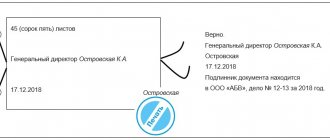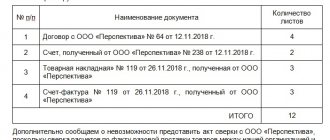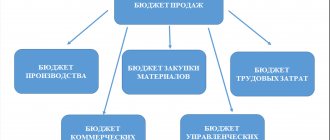Article 293 of the federal criminal law provides for a new type of punishment for citizens related to their professional activities - for the negligent attitude of persons occupying certain positions to their duties. The specificity of the legal relations to which this rule applies, as well as the complex nature of the crime, give rise to numerous discussions among legal scholars and practicing lawyers, which justifies the presence of a huge number of voluminous comments on the article in question. What semantic side of negligence is illuminated by the comments of scientific workers? Negligence of Article 293 of the Criminal Code of the Russian Federation, comments can be read on the Internet.
What does criminal negligence include?
Negligence under Article 293 of the Criminal Code of the Russian Federation is described in the comments as improper performance or failure (both full and partial) by an official to fulfill his labor duties.
From the proposed definition, the following characteristics of Article 293 of the Criminal Code of the Russian Federation can be distinguished:
- the official fails to act in relation to the obligations imposed on him by the employment agreement or contract (for example, an unprovided service that is an integral part of the labor function);
- the official fails to act in relation to part of the obligations assigned to him by the employment agreement or contract;
- an employee (of strictly defined professions) performs his job duties improperly (in violation of any norms or rules for the implementation of certain job functions);
- subjective aspect, consisting in the fact that all the above acts should not be of an intentional nature of guilt, that is, the subject of the crime could not perform (inaction), performed his professional duties in an inappropriate way consciously, implying the likelihood of adverse consequences of such actions or inactions, or could not realize what his actions will lead to, but in any case he should not desire their occurrence;
- a person who can be found guilty of neglect of authority conferred by professional activity must be an official, that is, the crime is directly related to the work of the accused.
The official accused of this crime must have officially documented job responsibilities and functions.
What could be the reasons for neglect of labor duties?
The commentary justifies negligence under Article 293 with the following possible reasons:
- disdainful attitude towards work;
- careless behavior when performing a job function;
- frivolity of an official in relation to labor functions assigned by professional activity;
- deliberate inattention or disregard for performing actions necessary to achieve the result of professional activity.
It is necessary to point out that abuse of official position may also give rise to liability, but in this case the provisions of Art. 285 of the Criminal Code of the Russian Federation. In Art. 293 of the Criminal Code of the Russian Federation, the commentary notes that in practice there are situations when, during the investigation in a case of negligence, it turns out that there was precisely an abuse of power, which means that the investigator has changed the incriminated article.
What may be the grounds for dismissal?
| Type of offense | Justification for dismissal |
| Failure to perform labor functions | In addition to recording the fact of shortcomings on the part of the employee, you need to take care of evidence that he did it consciously and without reasons justifying his behavior. |
| Failure to comply with internal regulations and labor discipline | Regular tardiness or unexplained absences can be associated with failure to perform work duties throughout the working day. It will not be possible to hold accountable those specialists who have an irregular schedule. It is important to remember that in the event of dismissal for two short-term delays, the court will consider it an excessive punishment and will reinstate the employee to his position. |
| Failure to meet production standards or planned targets | It will not be difficult to complete a settlement at the initiative of the employer, provided that systematic shortcomings occur due to the fault of the employee, and not for reasons beyond his control. |
| Violation of labor safety rules | Typically, this responsibility is specified in the employment contract or job description, so deliberate disregard for safety can cost your job. |
| Damage to the company, property or reputation | Any type of disciplinary sanction for the harm caused can be imposed on an employee only based on the results of an investigation and irrefutable evidence of his guilt. In addition, it is necessary to prove that material assets were transferred to the employee in the proper manner, or he was warned of responsibility for disclosing certain information about the activities of the enterprise. |
Go Documents for inheriting an apartment
Some may think that a specialist only risks being fired if he does not adhere to his job description. This is far from true, because the Labor Code obliges workers to comply with the requirements of all local acts of the company, which they were familiarized with in writing.
If the performer repeatedly violates his duty, the boss has the right to terminate the employment contract and dismiss this employee in accordance with paragraph 5 of Section 81 of the Labor Code of the Russian Federation.
To fully justify the resignation of an incompetent employee, the following conditions must be met:
- evidence of the employee’s non-compliance with the points specified in the employment contract;
- if the employee has an outstanding financial penalty during the second violation.
The main types of penalties identified in Art. 192 Labor Code of the Russian Federation:
- comment;
- rebuke;
- resignation;
- financial payment for damage caused.
The dismissal procedure can only be carried out if the penalty period is still valid, since he is considered to still be guilty of the offense.
The employee cannot explain the violation of the agreement with any valid reason that does not have documentary evidence.
Such cases include:
- willful absenteeism or being late for more than 4 hours;
- the mercenary was found intoxicated during working hours;
- disclosure of classified information;
- dissemination of personal data of your colleagues or senior workers;
- theft of money from the workplace;
- failure to comply with safety regulations and endanger the lives of clients.
Who can be the subject of a crime under Art. 293 of the Criminal Code of the Russian Federation?
As indicated above, a person who can be found guilty of negligence is, from the point of view of criminal law, a special subject.
The specificity of the perpetrator in this category of cases is emphasized by the presence of a certain number of duties assigned to him officially and directly related to his work activities.
In judicial practice, as a rule, the following three types of negligence are distinguished:
- Responsibilities performed inappropriately or unfulfilled are assigned to the culprit in connection with his position.
- Such responsibilities are specific to specific types of profession.
- A labor function not performed or performed in bad faith is provided for by the service performed by the culprit.
From the above categories it follows that official negligence is charged against the accused, who, in connection with their position, are obliged to perform the duty of exercising administrative functions, economic powers or actions of an organizational nature (for example, an accountant of an enterprise).
For official negligence, a court sentence is passed on people holding government positions (the subject is a civil servant).
And professional negligence is charged against doctors (for example, failure to provide necessary medical care), police officers, traffic police officers, and employees of the educational sector (for example, teachers).
Features of labor relations between employees and employer
These features include:
- the subjects are both the employee himself and the manager of the company;
- the system of legal relations in labor legislation has a difficult content (a complex composition of the rights and obligations of its subjects);
- unity of the labor law system;
- the totality of relationships in labor legislation is long-term in nature.
Deadlines in Art. 293 of the Criminal Code of the Russian Federation
The concept of deadlines in the norm under consideration does not apply to all possible consequences.
It should be noted that the crime recorded in this article is considered committed at the time of specific failure to perform or improper performance of official duties, and not at the time of the immediate onset of negative consequences.
The statute of limitations under this article may be applied, but not with all the consequences that may arise as a result of a criminal act. Thus, holding someone accountable after two years is impossible if material damage in the amount of up to one and a half million rubles or other non-serious consequences was caused by failure to perform or improper performance of one’s job duties. The statute of limitations does not apply to acts that entailed the death of one or more persons.
An example from judicial practice
When performing commissioning work during the construction of a workshop for breeding valuable fish species, the head of this workshop, Gr. Petrov entrusted the installation of expensive climate control equipment to a specialist, Mr. Klyuev, who does not have the proper qualifications and experience. A corresponding order was issued on the appointment of the executor, signed by gr. Petrov.
As a result of the produced gr. Klyuev's manipulations of expensive equipment worth 2 million rubles were irreparably damaged. Owner of future production gr. Shishkin filed a statement with the police regarding the damage caused. As a result, after the court hearing, Mr. Petrov was charged under Art. 293, part 1 and a fine of 120 thousand rubles was imposed.
To get expert commentary, ask questions below
Determination of guilt
Proving the guilt of civil servants, official or professional persons, as almost all scientific and practical comments interpret, is a rather complex process.
The investigative team needs to carry out a number of operations to determine the presence or absence of guilt of a particular citizen:
- The investigator is obliged to establish the range of professional responsibilities of a person who is accused of committing a crime under Article 293 of the Criminal Code of the Russian Federation (as a rule, all job responsibilities must be specified in the job description). It should be noted that the legislator has created a typical list of labor and professional responsibilities, which are recommended to be taken as a basis when developing job descriptions of enterprises and institutions. Such an establishment is necessary in order to accurately prove the existence of official duties, non-fulfillment or improper fulfillment, which led to one or a group of the above-described consequences.
- A sincere independent admission of guilt by the accused. Moreover, such recognition can take place upon the onset of negative consequences or before their onset.
- Finding out whether there were any circumstances that directly or indirectly could prevent a civil servant, official or official from fulfilling their obligations. If, even in the presence of the most severe consequences, it turns out that the person was unable to fulfill his work duties due to force majeure circumstances, the court’s decision will be acquittal.
- If a person has not performed the necessary professional functions due to lack of appropriate qualifications, he cannot be charged with a crime under Article 293. In such a situation, responsibility for the negative consequences will be assigned to the person who appointed a person who does not have the necessary skills to a certain position ( for example, the chief physician will be held liable if it turns out that one of his subordinates did not fulfill his official obligation due to insufficient knowledge or skills).
- Finding out whether there was physical or moral, direct or indirect pressure on the accused, due to which he refused to perform his duties or performed them improperly. Such pressure may include blackmail, threats of physical harm or moral torture addressed to both the accused himself and his family members. If the fact of pressure is proven, as a rule, this will provide grounds for acquitting the accused.
With timely notification of immediate superiors about the committed act and an explanation of its reasons, as judicial practice shows, in most cases it is possible to avoid the onset of consequences and, as follows from this, criminal punishment for the perpetrator.
Ensuring employee rights
Possibilities for provision arise directly from the obligations of employers prescribed by labor regulations. An employee who assumes functions when concluding an employment contract with an employer can hope to ensure his rights are ensured.
One of the main employment tasks for an employee is financial security. It must be provided in full within a certain time frame depending on qualifications, difficulty of the work performed, and its quantity.
The employee must also have time to rest from work: in the form of a lunch break, weekends and holidays, and annual leave. The employer must provide staff with the required information about production and work processes upon request, information about working conditions and compliance with safety standards.
In order to protect their own interests, an employee can become a member of all professional associations, unions, and companies. The employee also has the opportunity to exercise the right to participate in the management of the organization, which was provided for by the Labor Code of the Russian Federation and other legislative acts. If a personal or group conflict arises that is associated with labor contradictions, it must be resolved by the methods established in the Labor Code of the Russian Federation. All employees must be provided with mandatory social insurance. The employer does not have the right to reduce the list of personnel rights, but additional agreements may be made. agreement (signed by the employee) to change certain conditions.
Sanctions for criminal negligence
Article 293 of the Criminal Code (the current version) consists of three parts, the first of which fixes the act and punishment of light forms, and the second and third – acts with aggravating circumstances and more severe sanctions.
Also part 2 of Art. 293 of the Criminal Code of the Russian Federation provides for a sanction in the form of deprivation of the right to hold a certain position for a period appointed by the court.
Impeccable performance by a person of the entire range of labor duties of any profession can be found extremely rarely, however, the number of convictions made under Article 293 of the Criminal Code of the Russian Federation is not so large. This situation is justified by the application of this rule only in cases of large-scale neglect of one’s labor functions, which entailed significant consequences for one person or society as a whole.
Order
In case of constant violation of his direct obligations, the worker must be subject to disciplinary action in accordance with the requirements of Section 81 of the Labor Code of the Russian Federation.
The sequence of dismissal of an employee under the above section of the Labor Code:
- collection of necessary papers confirming the regular disregard of their obligations by workers;
- finding compliance of the worker’s obligations with the clarifications in the instructions;
- identifying the employee’s category, since according to the work contract, pregnant women and women with children under three years of age cannot be fired;
- identifying the presence of the first disciplinary sanctions;
- receiving an explanatory note in which the mercenary indicates the reasons for his negligence in his work;
- considering the weight of the reasons listed by the mercenary;
- creation of a resignation order under Section 77 of the Labor Code of the Russian Federation;
- familiarizing the employee with the order, carefully reading it and signing it;
- registration of the order in the required journal on the rules of personnel work;
- recording the fact of violation of obligations in the work book;
- return of the work book and the amount of money earned.
Go How to check a private lender for fraud
How to fire
| Dismissal steps | Violations and liability for them | What is it based on? | |
| Identifying the basis | 1 | Violation of labor discipline | Clause 81 of the Labor Code |
| 2 | The employer records the act committed | Clause 81 of the Labor Code | |
| Checking the legality of dismissal in a specific situation | 3 | A mercenary writing an explanatory note | Article 193 Labor Code |
| 4 | Regulation of the collection period | Article 193 Labor Code | |
| 5 | Identification of the presence of the first disciplinary sanctions | Articles 81, 194 Labor Code | |
| 6 | Find out whether the mercenary belongs to the category of people whom it is illegal to temporarily dismiss | Articles 81, 261 Labor Code | |
| Registration of dismissal | 7 | Printing the dismissal order | Article 84.1 of the Labor Code |
| 8 | Creating a payroll list | Resolution of the State Statistics Committee “On approval of unified forms...” dated January 5, 2004 No. 1 | |
| 9 | Familiarization of the worker with the order | Article 193 Labor Code | |
| 10 | Making necessary adjustments to the work book | Clause 84.1 of the Labor Code | |
| Calculation | 11 | Payment of the last salary to an employee | Part 84.1, 232 TC |
| 12 | Payment by the contractor for the damage caused | Part 232, 238 TC | |
| Delivery of documents | 13 | Obtaining a work book by a mercenary | Clause 84.1 of the Labor Code |
How to dispute
If dismissal under an article for failure to fulfill official duties occurred without compelling reasons, then the worker has the right to challenge the order.
When an order is appealed, a judicial proceeding takes place, according to which the dispute is resolved by identifying reliable facts confirming the veracity of one of the parties.
If law enforcement agencies find evidence of a citizen’s illegal removal from his work, then he is guaranteed a return to work and reimbursement for the time spent.
If the management has already been called upon to pay a material claim in similar circumstances, then administrative liability is imposed on him, since this type of recovery can only be made once.
There are several types of disciplinary punishment:
- verbal warning;
- fine;
- suspension.
All of the above measures must be agreed upon with the Labor Code, because independent intervention is fraught with administrative liability. The number of fines must necessarily correspond to the number of offenses.
The manager individually decides whether to apply any procedures to punish the employee. Fines do not require any changes to the employee’s documents.







